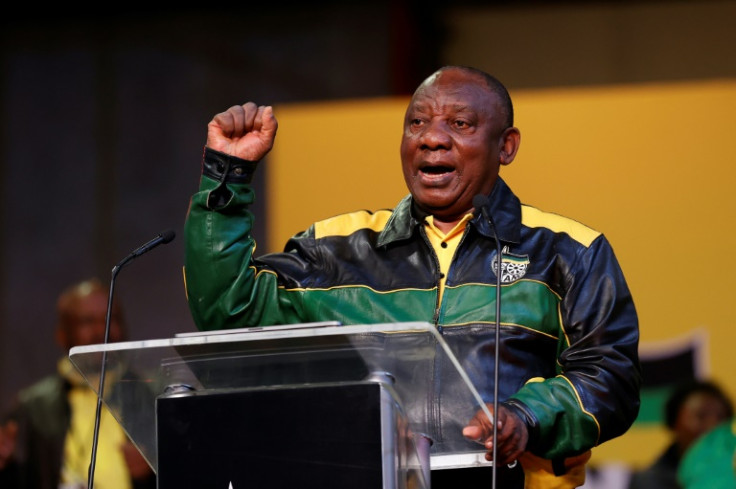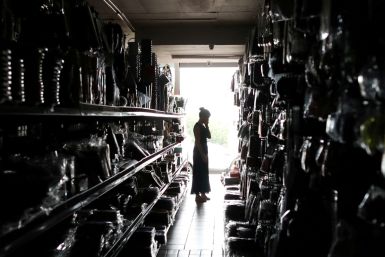S.African Leader Braces To Head Off Impeachment Threat

Cyril Ramaphosa may have insisted over the weekend he will not resign, but the South African president still faces a parliamentary vote Tuesday that could lead to his impeachment.
The ruling African National Congress (ANC) will meet Monday to discuss Ramaphosa's fate after a parliamentary panel's report last week said he might have acted illegally in covering up a burglary at his farm.
Despite deep divisions inside the party, there appears to be a majority backing the president.
There was pressure last week from some quarters for Ramaphosa to quit or be forced from office over what has become known as the Phala Phala affair, after the farm at the centre of the controversy.
But Ramaphosa looked relaxed and cheerful Sunday as he spoke to journalists outside a conference centre where some ANC delegates were already discussing the case against him.
With a smile, he explained he had been excluded from the meeting, agreeing that, in the circumstances, it was best for him not to take part.
He has been accused of having covered up the burglary of more than half a million dollars in cash from his farm in northeastern South Africa.
Last week's report said the president "may have committed" serious violations and misconduct.
The president has been under fire since June, when a former spy boss filed a complaint with the police alleging that Ramaphosa had hidden the February 2020 burglary from the authorities.
He accused the president of having organised for the robbers to be kidnapped and bribed into silence.
Ramaphosa said a vast sum of cash stashed at the farm was payment for buffaloes bought by a Sudanese businessman. A police inquiry is ongoing, but he has not so far been charged with any crime.
And while Ramaphosa insists he is innocent of any wrongdoing his explanations did not convince the parliamentary panel, which consists of three lawyers who were appointed by parliament.
On Monday, the ANC's highest body -- the National Executive Committee (NEC) -- meets to discuss the matter.
On Tuesday the report will go before parliament to be examined and there will be a vote on whether to launch an impeachment process against the president.
In South Africa, impeachment means removal from office.
The scandal, with its colourful details of more than half a million dollars in cash being hidden under sofa cushions, comes at the worst possible time for Ramaphosa.
On December 16, he will contest elections for the ANC presidency -- a position that also holds the key to staying on as the nation's president.
On Saturday Ramaphosa's spokesman said the president would challenge the parliamentary report in court.
"President Ramaphosa is not resigning based on a flawed report, neither is he stepping aside," said Vincent Magwenya.
"It is in the long-term interest... of our constitutional democracy, well beyond the Ramaphosa presidency, that such a clearly flawed report is challenged, especially when it's being used as a point of reference to remove a sitting head of state," he added.
A majority is needed to trigger the impeachment procedure -- and if it is launched, it would take a two-thirds majority to remove the president from office.
Despite its divisions, the ANC has a comfortable majority in parliament.
"Ultimately the decision on impeachment would be a political one in parliament," said a judicial source who requested anonymity.
US Presidents Bill Clinton and Donald Trump had "survived their impeachment processes because the necessary majorities couldn't be found by their challengers", the source pointed out.
Nor is it even certain that parliament will vote to launch the procedure.
As well as Ramaphosa, some legal experts have outlined flaws in the report.
They argue that without recourse to the ongoing criminal investigation it is based largely on hearsay, Ramaphosa's statements, and the initial complaint lodged by an opponent of the president.
© Copyright AFP 2025. All rights reserved.
















